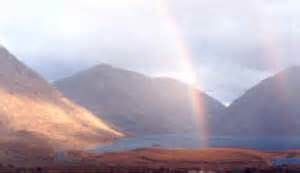 Scripture Passage: Genesis 12: 1
Scripture Passage: Genesis 12: 1
Now the Lord said to Abram, “Go from your country and your kindred and your father’s house to the land that I will show you.
Have you ever noticed that no one spends much time standing still in the Bible? The story begins with God breathing life into Creation and, in essence, making us a home, a place. But it doesn’t take but a few chapters before we are on the move–aliens, immigrants, sojourners. It’s pretty clear that God calls us to be pilgrims on this Way, traveling light and gathering all of Creation together as we move. And along the way, we hear lots of words like “sent forth” and “go” and “follow”. We are called to be a people on the move (at least figuratively and probably even a little literally), essentially migrating from one place to the next, from one way of being to another. And most of the time, those that came before us moved freely through their journey without a map, without real plans or even real provisions. Most of the time they were just journeying to a place they did not know but that they knew that God would show them.
So what has happened to us? How did we become so planted? How did our lives become so safe? It was never that way in the beginning. The journey of faith was a wildly unpredictable one into places unknown. The journey of faith called its travelers to be pilgrims in the wilderness, sojourners through foreign lands. Oh, we like to think of ourselves as journeyers, particularly we Methodists who readily espouse Wesley’s notion of faith as movement, as, to coin his words, “going on to perfection”. (Gee, there’s that “go” thing again!) And yet, we will do everything possible to avoid getting driven to the wilderness or left without everything that we need (or at least the latest technological gadget). We tend to separate ourselves from discomfort or inconvenience or chaos. We stick to our plans. But wildness and chaos often creates a certain energy. It wakes us up; it makes us pay attention. This week on the Today Show, Al Roker is doing some sort of “Tech Out” series, meaning not that he techs out but that he TAKES tech out. He’s going analog and old school and EVEN vinyl. (Remember those words? They existed before we became so technologically advanced. On Monday, he looked at vinyl (yes, vinyl) records. The interesting thing is that a company that was about to go belly up a few years ago is searching for old LP printing machines because the sale of albums has surpassed the sale of streaming music this year. Who would’ve thought THAT? (I mean, because we’re so advanced and all.)
Maybe on some level we really DO crave wilderness. Maybe that’s why Lent begins in the wilderness. Have you ever noticed that when you travel you see a lot more than when you’re just driving to and from work? Is it because there’s more to see? Or is it that when one is unfamiliar territory, one is more aware of the surroundings, more open to seeing things as they are? Seeing oneself as a pilgrim, a wanderer, is the same thing. It keeps our eyes open and our minds alert. We notice God’s Presence; we notice God’s People; we do not see ourselves as “owners” or even squatters. We see ourselves as part of Creation. We begin to see that we are called not to arrive but to journey. Our faith IS the journey. So Lent begins in the wilderness and asks us to travel deep within ourselves, beyond our preconceptions, beyond our assumptions, beyond our plans. We go, open to what God has to show us along the way. (So, maybe it would help if we put down our smart phones just for a little while so that we could see the world!)
It may be that when we no longer know what to do, we have come to our real work. And when we no longer know which way to go, we have begun our real journey. (Wendell Berry)
So as we make this Lenten journey, what do you see? What are you missing? Where are you being called to go? (And does that have to involve your cell phone?)
Grace and Peace,
Shelli






